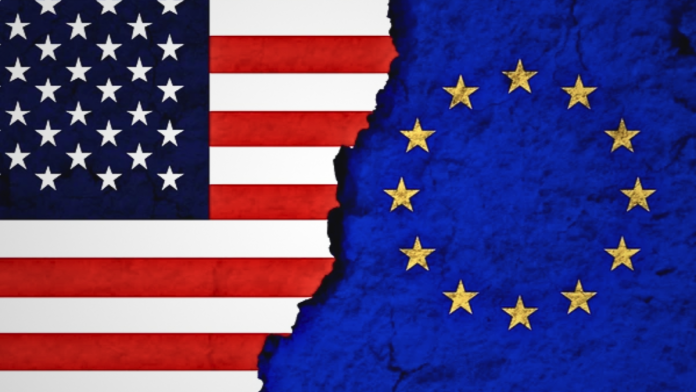The Trump administration is weighing the possibility of imposing sanctions on European Union officials or national authorities responsible for carrying out the EU’s Digital Services Act (DSA), according to sources familiar with internal discussions. This move, if taken, would be highly unusual and mark one of the sharpest escalations yet in the ongoing dispute between Washington and Brussels over technology regulation.
The Digital Services Act is the EU’s flagship law aimed at making the internet safer. It requires large online platforms to remove illegal material, such as hate speech and child abuse content, while also putting stronger checks on the spread of disinformation. European officials argue that the legislation is about accountability and safety. They stress that freedom of expression is protected in the process.
U.S. officials, however, view the law very differently. They argue that the DSA unfairly targets American companies such as Meta, the parent company of Facebook and Instagram, and imposes significant financial and operational burdens on them. More importantly, U.S. authorities have claimed the law is being used to suppress certain viewpoints, including those held by conservative voices. This difference in interpretation has fueled a heated dispute between two of the world’s largest democratic allies.
Possible Visa Restrictions on European Officials
According to the sources, one of the measures under consideration by the Trump administration would be visa restrictions on European Union or member state officials who are directly responsible for enforcing the DSA. That would mean those individuals could be barred from entering the United States. While governments frequently protest foreign regulations they view as harmful, directly sanctioning government officials in response is an extremely rare step.
Sanctions bite hard as Putin-linked oligarch loses fight to free $600 M superyacht in London
The discussions about sanctions took place in Washington last week during internal government meetings. No final decision has been made yet, and senior officials are still debating whether to move forward. A spokesperson for the U.S. State Department would not confirm or deny the possibility of such punitive action. Instead, they stated only that Washington is watching what it describes as growing censorship in Europe “with great concern.”
Earlier this month, an internal cable directed American diplomats in European capitals to actively lobby against the DSA. Diplomats were told to raise U.S. concerns during meetings with European governments and digital regulators. The message emphasized that the law creates major costs for U.S. companies and could restrict the free expression of Americans online.
The order to diplomats was issued by Secretary of State Marco Rubio, who in May had also threatened visa bans for foreign officials accused of “censoring” Americans online. Rubio has suggested that such measures could apply to European regulators enforcing the DSA.
European officials, on the other hand, have strongly pushed back. A spokesperson for the European Commission dismissed U.S. claims of censorship, calling them “completely unfounded.” They said the DSA balances tackling harmful material with protecting the right to free speech.
India contracts lobbying firms in the US to address tariffs and oil sanctions
A Pattern of Confrontation on Tech and Speech
This dispute is the latest in a broader clash between the Trump administration and European authorities. Washington has repeatedly criticized European countries for what it sees as unfair treatment of U.S. technology companies. At the same time, top U.S. officials, including Vice President JD Vance, have accused European regulators of trying to silence right-leaning groups and political figures across the continent.
The administration’s actions are not limited to Europe. It has already imposed sanctions on a Brazilian Supreme Court justice, accusing him of restricting political expression while overseeing a case involving former Brazilian president Jair Bolsonaro, a close ally of Donald Trump. These moves show a growing willingness by Washington to intervene in foreign countries’ internal decisions when they are seen as suppressing conservative viewpoints.
In recent months, American leaders have used high-profile conferences and public speeches to highlight their criticism of the DSA. At one such event earlier this year, Vice President Vance accused European officials of censoring political speech, singling out groups such as Germany’s right-wing AfD party. His comments stunned many European leaders, especially at a forum that is normally centered on transatlantic unity.
Despite the disagreements, European officials continue to emphasize that the DSA is designed to create a fair and open digital environment. They argue that the rules apply to all companies, regardless of where they are based, and are not aimed specifically at U.S. businesses.
Still, the prospect of sanctions is adding a new layer of tension to an already strained transatlantic relationship. Previous disputes over tariffs, trade negotiations, and antitrust cases had already put pressure on ties between the two sides. Now, the fight over online speech and the costs of digital regulation has become another flashpoint.


